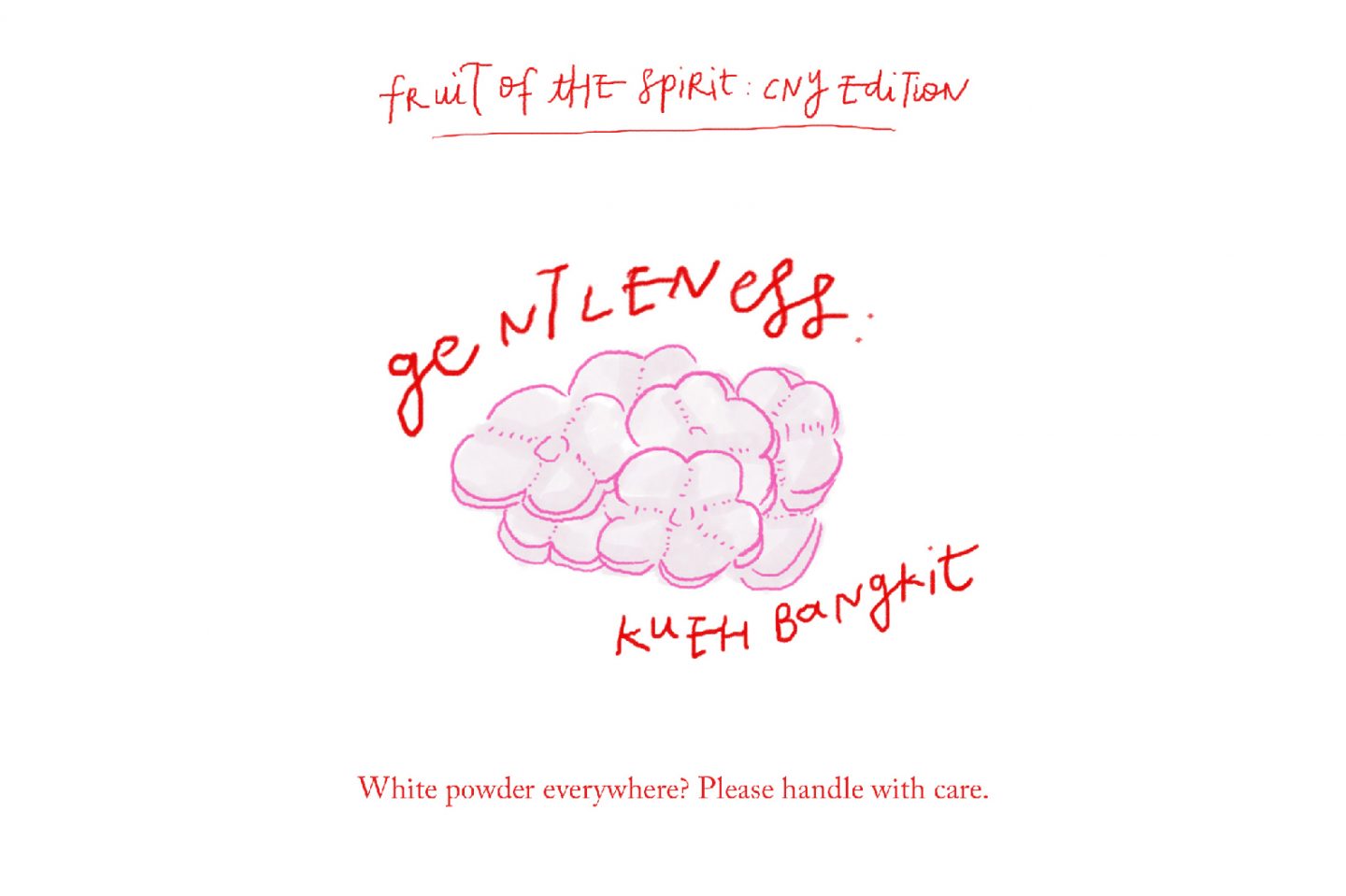FRUIT OF THE SPIRIT: CHINESE NEW YEAR EDITION
One of my favourite CNY snacks is the crumbly, soft, forever delectable kueh bangkit. My relatives knew this from the rate that I, as a child, would finish an entire batch all by myself. I’d receive (and quickly consume) a tub or two every time I went visiting.
Available in a million different patterns and made of tapioca flour and coconut milk, they taste good one and the same. The trademark of a perfect kueh bangkit: Light powdery blocks dance on the tongue before melting into pasty magic. For a cookie that seems as hard as rock, no chewing is required.
Before you know it, the tub is empty again.
There’s so much we can learn about the gentleness of our Good Shepherd from the kueh bangkit. He is described as “gentle and lowly in heart” (Matthew 11:29), and he exhorts believers to likewise treat each other “with all humility and gentleness” (Ephesians 4:2).
Meekness isn’t weakness. In God’s Kingdom, meekness is an expression of surrender.
Gentleness, meekness and humility are synonyms in the Bible – a quality affirmed by God in His servant Moses, who was “very meek, more than all people who were on the face of the earth” (Numbers 12:3).
You might be thinking: What’s so great about meekness? Doesn’t that mean weakness?
In God’s Kingdom, meekness is an expression of surrender. The root meaning of the Hebrew word for “meekness” is “to be bowed down”. It is a posture that renders full authority to God and takes no position of superiority over others (Philippians 2:3).
Moses modelled it. Jesus modelled it. And instead of being their weakness, it was their strength.
ike the sturdy kueh bangkit, God guides us with a hand that is firm but soft. His love is strong and unwavering like a rock, but we experience it as a gentle touch – like kueh bangkit melting on the tongue. And that’s the way we should treat those we meet this CNY: With all gentleness of speech and action.
Let your gentleness be evident to all. (Philippians 4:5)









